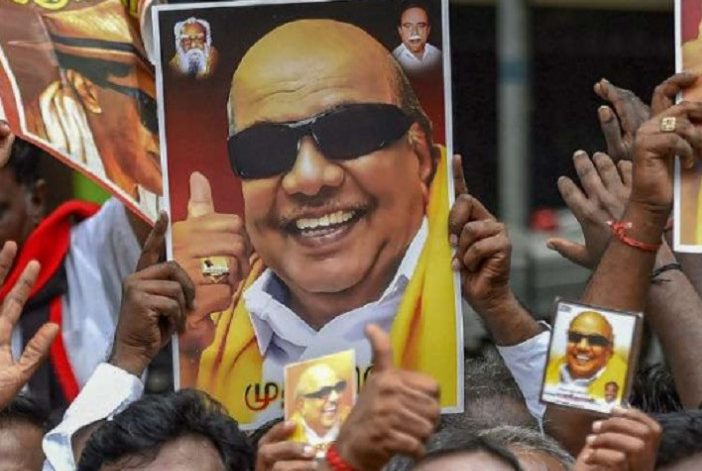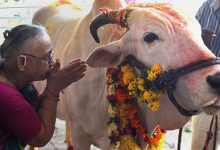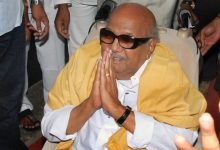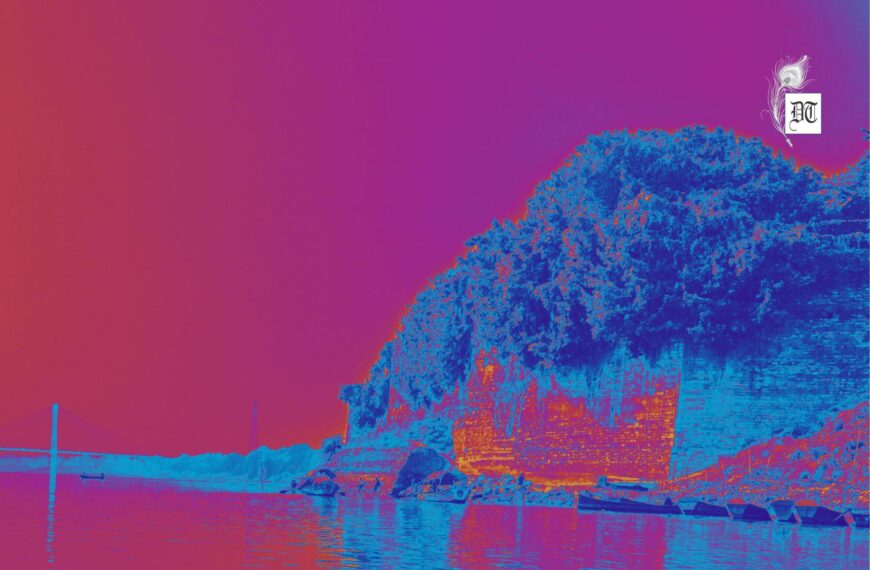It can be said with some degree of certainty that the creed of atheism, which is central to the DMK’s outlook, will persist along with its antipathy towards what has been called Hindu and Brahmin “imperialism”. However, to what extent Karunandhi’s sons and successors – M.K. Alagiri and M.K Stalin – will be able to sustain the DMK’s characteristic worldview for any length of time is open to question in the absence of their father’s personality and background in the state’s politics and cultural life. A report for Different Truths.
The death of J. Jayalalithaa and M. Karunanidhi within eight months of each other has rung the curtains down on the atheistic, anti-Hindu, anti-Brahmin and anti-Hindi Dravidian chapter of Tamil Nadu politics. The beginning of this period, which underlined the state’s distinctive nature, was the watershed event of the DMK’s victory in the 1967 assembly elections, which was the second time that the then seemingly invincible Congress tasted defeat after its loss to the communists in Kerala in 1957.
Among the notable losers was none other than Congress strongman K. Kamaraj, and that too, at the hands of a student leader owing allegiance to the DMK, which had been formed less than two decades ago. Since the Congress had lost several other state elections in that year, the DMK’s rise can be said to have coincided with the beginning of the Congress’s decline, a condition which is quite palpable at present.
Considering, however, that Karunanidhi was one of the Congress’s allies in the last few years, as when the two were partners in the Manmohan Singh government, it is obvious that the enmity half a century ago had dissipated. At the same time, the DMK’s bias against the northerners had also lessened, along with the separatist sentiments, which had been aired till the early 1960s. It was the Chinese aggression of 1962 which is believed to have finally laid the ghost of a “sovereign” Dravida Nadu.
Even then, the sense that Tamil Nadu is markedly different from the rest of the country is evident from the burials of Jayalalithaa and Karunanidhi, as also of their celebrated predecessors C.N. Annadurai and M.G. Ramachandran, underlining how unique the state’s culture is from that of North India as also the other states where the dead are mostly cremated.
Given this distinguishing feature, it can be said with some degree of certainty that the creed of atheism, which is central to the DMK’s outlook, will persist along with its antipathy towards what has been called Hindu and Brahmin “imperialism”. However, to what extent Karunandhi’s sons and successors – M.K. Alagiri and M.K Stalin – will be able to sustain the DMK’s characteristic worldview for any length of time is open to question in the absence of their father’s personality and background in the state’s politics and cultural life.
Of the two, Stalin is set to inherit the mantle of the party’s leadership in accordance with Karunanidhi’s wishes, but not in an atmosphere free of rancour since Alagiri has long been miffed with his father’s “partiality” towards the younger son. If Alagiri now breaks away to form his own party, as is believed that he may do, it will be the second split in the Dravidian movement since the AIADMK split from the parent organisation, in 1972.
Will this lead to a dilution of the Dravidian political ethos? The possibility cannot be ruled out in view of the speculation about AIADMK’s proximity to the BJP. The irony of this closeness between a supposedly anti-Hindu and anti-Hindi party with one known for its aggressive espousal of the Hindu cause is obvious.
Yet, an alliance of this nature is very much on the cards because the AIADMK, which has been considerably weakened by the death of its guiding light Jayalalithaa, has no option but to grab whatever helping hand it can find at a time when there is every possibility of its arch-rival, the DMK, comfortably winning the next assembly election on the basis of a sympathy wave for Karunanidhi.
Even otherwise, the DMK would have won because of the AIADMK’s fragile condition. But, now, few will doubt its excellent electoral prospects even if the matinee idol, Rajinikanth, throws in his lot with an AIADMK-BJP combine.
Whatever be the political mosaic with the presence of two DMKs, run by Stalin and Alagri, respectively, the AIADMK, the BJP and the two film stars, Rajinikanth and Kamal Haasan, Tamil Nadu will seemingly be back to the times when there was one influential DMK, with Stalin’s outfit playing a dominant role where the Dravidian movement is concerned. The only difference, however, is that it is not known if Stalin has the calibre to step into the larger-than-life shoes of his father and his forbears.
If he fumbles, then other non-Dravidian parties like the Congress will be able to secure footholds in a state from where they were ousted half a century ago by a resurgent regional political phenomenon, which reflected the views of a large section of Tamilians even if this excluded the Brahmins. But one thing is for sure: Tamil Nadu is in for a troubled period.
Amulya Ganguli
©IPA Service
Photo from the Internet





 By
By
 By
By

 By
By